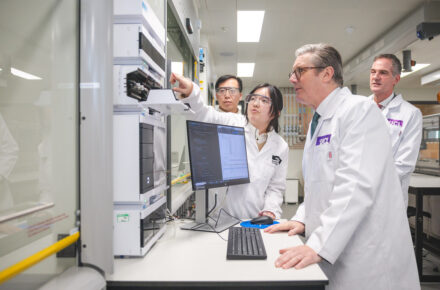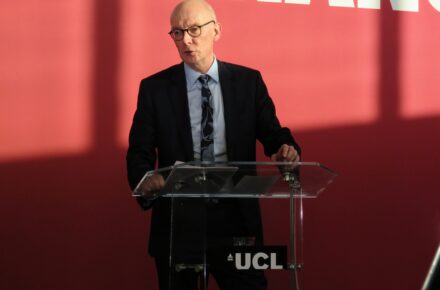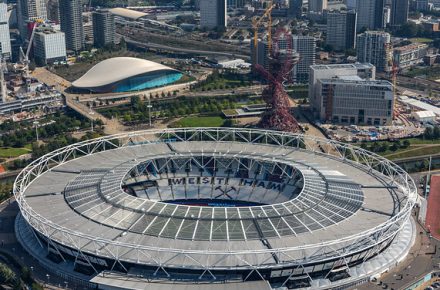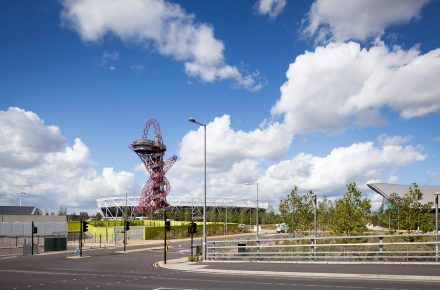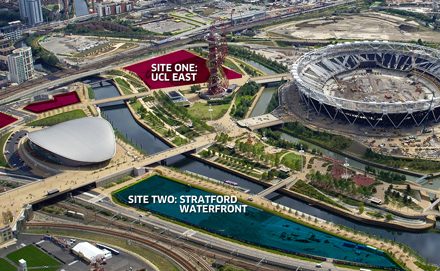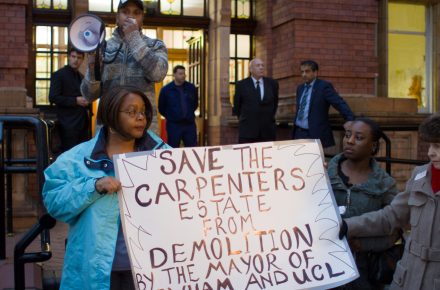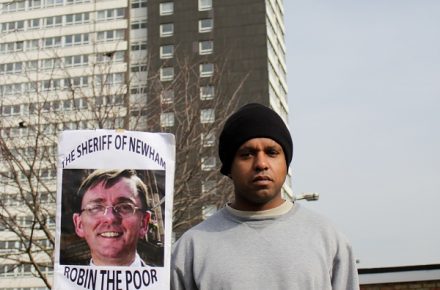Rebekah Wright, Thais Jones, Samir Ismail and Nandini Agarwal
To protect anonymity, some names have been replaced with pseudonyms.
On the 22nd of September, many students, leaving home for the first time, prepared to move into UCL’s newest accommodation, One Pool Street (1PS). Many were already anxious, if not confused about moving in, as despite being enrolled on a course taught on the Bloomsbury Campus, they had been housed in Stratford. These anxieties were compounded when only three days before move-in they were informed that 1PS would not be ready to house students for another week. It would be another two weeks before residents were told that it would in-fact be another month, or longer, before they could move in.
Students were housed in a range of different temporary residences. Relatively lucky students found themselves housed in 4-star hotels on Tottenham Court Road while others were placed in more than lacklustre UCL accommodation such as John Dodgson House. At first, this seemed a rudimentary problem which would cause limited distress to those involved. However, an in-depth investigation revealed significant issues faced by students, and an apparently worrying array of mismanagement and incompetence from UCL Accommodation in dealing with these issues, appearing to stem from structural issues within UCL itself.
The first in a series of miscommunication from UCL was during the initial accommodation application process for new students in the summer. Some students told The Cheese Grater that One Pool Street was not listed as an available option when selecting their preferences for accommodation criteria, blindsiding them completely when they received news that they would be housed all the way in Stratford. Interestingly, UCL says that rooms are allocated based on the ‘availability’, ‘maximum weekly rent’ that a student can afford, and ‘individual preferences’. As such, students are given a list of options as to their room preference: whether or not they want to be catered, have an ensuite or even live in a studio. A factor not considered is the distance a student is willing and able to commute. It is not uncommon to be assigned a room that was not on one’s preference form. However, assigning students to an accommodation that wasn’t even on the website displays UCL’s ignorance.
In an interview with The Cheese Grater, Nick Miao, the Students’ Union’s Accommodation and Housing Officer suggests that since the building was still under construction, “No images were available for use on the website’” leaving the entire residence omitted. However, computer rendered images of 1PS did exist on the Transforming UCL webpage, dated October 1st, 2020. This means that more information could have been provided to students moving in September 2022. Living in Stratford would still be less than ideal, but at least students would know it was an option.
The Cheese Grater has seen emails revealing that only three days before their supposed move-in date, students were told that it would be another week until 1PS would be ready; this coming as students had finally reconciled themselves with the disadvantages of living in Stratford. Students only expected to live in these places a week and even those living in 4 star hotels became unhappy after learning that 1PS would at best be ready by reading week.
The original, incredibly vague, reason for delay given was, continued supply chain challenges and technical difficulties’. When these slightly uninformed students did eventually move into their temporary accommodation, whether decaying halls or luxurious hotels, a whole new plethora of issues began to materialise.
Who would have thought that a Hilton babe and JD inmate would share a common cause? What is the one thing that both the visiting celebrity and the lowly student yearn for? The answer: a genuine freshers’ experience and sense of community. A typical student, one so lucky to start the year living in the same room they will for the rest of it, spends the first few weeks settling in and getting to know their flatmates. However, this was an opportunity that the 1PS students were robbed of. A student lamented, “[They] were left entirely to [their] own devices,” in trying to carve out a sense of familiarity – they weren’t told how many students would be at their temporary accommodation or who these students were, or who their flatmates at 1PS would be when they did eventually move in. Students dealt with the reality of being alone by asking the accommodation team for their room numbers, and then relying on personal group chats to figure out who their flatmates were, because UCL’s data protection policy meant a lack of official access to said information. The data protection policy makes sense, but students themselves suggested alternative solutions including voluntary sign-ups to help them socialise.
The freshers’ experience is not solely a social one. It is when academics can take a back seat so freshers can adjust to their new surroundings and make the space their own. This was a rite of passage that the future residents of 1PS were excluded from. We found that students were receiving weekly emails about how it would only be another week until they could move in. Students were therefore unable to get comfortable in their temporary accommodation, always thinking that soon they would be on the move again. This constant uncertainty meant that students didn’t know if unpacking or doing laundry would be a waste of time, always expecting to be out in just a few days. This kind of uncertainty was “not [an] ideal situation for studying,” noted one resident, it was just an additional source of anxiety, on top of the “many things [they] have to worry about already.” Another resident said that they would rather UCL Accommodation just “told them the truth” about when they were going to move in.
We can stipulate that the reason students were not given a fixed move-in date was simply because UCL themselves did not know when 1PS would finally be ready. The comments we’ve received make clear that UCL’s carelessness in communication is symptomatic of their inability to empathise with students and their further refusal to be truthful. Lina, who had been through this ordeal-by-email said, “It was horrible, I just didn’t trust anything they said anymore.”
Other than a general feeling of disappointment in UCL’s shortcomings, students in all temporary accommodation have been facing genuine day-to-day problems. Stefan, an international student from Spain housed at Radisson Blu Edwardian Hotel on Tottenham Court Road voiced issues with hotel living: “At the very beginning I had to wash everything by hand.” It is unthinkable that students were only informed about access to laundry facilities after a full two weeks. Those temporarily housed in hotels as far as Kensington were only given access to the Circuit Laundry facilities at Ramsay Hall, a UCL accommodation minutes from the Bloomsbury campus. The time lost and costs incurred from the 30-minute commute seem a high price to pay for an essential task. It seems natural that students would be reimbursed for this travel, given this is an expense resulting from UCL’s poor planning. However, UCL appears sluggish in dealing with matters involving travel costs and reimbursement in general.
Despite the lack of clarity regarding travel expenses, UCL made clear that they intended to reimburse students that are placed in hotels, and do not have access to cooking facilities, for their food. The result of this has been that many students had not had warm food since they moved into temporary accommodation, without ‘access to even a microwave’, save for the weekly 1PS dinners. Unfortunately, actually obtaining the £30 a day allowance to afford a hot meal proved to be an uphill battle. Originally, UCL planned to retrospectively add this money to the students’ Portico credit, ‘once [they had] moved into [their] permanent accommodation at One Pool Street’, which could then be used to ‘reduce [their] first term invoice’. It is worrying that UCL thought it was appropriate to pay students a lump sum a month later, in the midst of a cost of living crisis, when many students needed this money sooner in order to make ends meet and have a decent quality of life.
It was only two weeks later, following feedback from students, that UCL decided to reimburse them ‘prior to [their] move to 1PS, directly into [their] bank account’. Initially, UCL’s willingness to accept student criticism and change accordingly was welcome. The details of the planning and execution of the policy, however, left much to be desired. Almost a month after promising more prompt reimbursement, students were, at the time of move-in, yet to receive this money. This U-turn has effectively been rendered fruitless, since students did not benefit from reimbursement until the 9th of November, four days after their move-in.
Home students would certainly have benefited from an earlier deposit of this money. Unfortunately, for international students, it ‘MUST be a UK bank account’ to be eligible for reimbursement. Those who have been living in hotels are still without a permanent, fixed address and as such are unable to open a U.K bank account. UCL only relented to send money to an international account after being pressured by Stefan. UCL essentially withheld the fact that they are able to send money to international accounts from students, made clear by the fact UCL would only do this when asked. While we understand it takes more time and is costlier to transfer money internationally, UCL’s reluctance to do so is demonstrative of the fact they do not understand or care little about the particular issues faced by international students.
International students are already faced with several difficulties including culture shock, a new environment, the tedious process of getting a VISA, and other administrative complexities. They are expected to deal with these challenges, all surrounded by the uncertainty about where they’re going to live. While home students meant to be living at 1PS are faced with the same uncertainty, more localised support means that they are better equipped to deal with it.
Another process that international students are further disadvantaged in, is moving. Home students have the benefit of the UK’s transport infrastructure to move their things across the country. Meanwhile, international students must, at huge personal expense, either bring it with them on a plane or have it shipped. Catherine explained the challenges of living in temporary accommodation as an international student, “some people were planning to have really heavy things shipped from their home country by their parents, to One Pool Street. They can’t do this without a fixed address.” She continued, “even though [UCL] had arranged to have things forwarded from One Pool Street to your temporary accommodation, if they send something really heavy it’s difficult to then bring it back to One Pool Street.” This is especially true for those staying in hotels, who won’t have space to store these large items they’ve had shipped over.
The lack of forethought on UCL’s behalf concerning the unique challenges faced by international students creates a two-tier system where they are not given the additional support they require.
Despite these issues, students have acknowledged the perks of living in a central London four star hotel. Elinor, a student currently housed at a Radisson Blu Hotel, explained, “[they are] kind of bribing us not to complain – but it’s working,” further sharing with us that this was a common feeling among those placed in her hotel. Meanwhile, students placed at the only slightly less luxurious John Dodgson House had different concerns.
Catherine, an international postgraduate student, explained the wantful state of John Dodgson House at the time of her arrival. “The flat had clearly not been cleaned from the year before. Everything was stained and mould was growing.” Catherine further explained how she, along with her fellow future 1PS residents were left to discover the shortcomings of the John Dodgson House facilities. “Two out of the five fridges did not work, something we weren’t told. Whenever you asked a staff member where something was, they’d tell you they didn’t know. I guess they expected to move into 1PS too.” This is possibly a result of the fact that John Dodgson House was not meant to house any students for the 2022-23 academic year due to ‘much needed renovation’. UCL’s apparent lack of preparation compounded students’ anxieties.
Catherine juxtaposed “cleanliness [being] very important in [her] culture” with having to go “days without heating or hot water, having cold showers.” She continued, “Eventually it was making me ill mentally, I couldn’t feel safe. I needed to get out.” After receiving no help from UCL Student Support and Wellbeing services, she wrote to the Accommodation team requesting to move, as John Dodgson’s hygiene standards were making it difficult to deal with her “long-standing hygiene-related OCD.” She highlighted that she only accepted the 1PS offer owing to it being “brand new and clean” and “UCL’s failure” was causing her “such distress” and “ruining [her] important first months”. It took 8 days and multiple visits to the reception desk for UCL to offer Catherine an alternative. Concerningly, she only found out about the alternative when she went to reception and was told, “Oh don’t worry about it, you’re moving to the hotel tomorrow, anyways.” Her predicament did not end here. Confusion about when exactly she could move to the hotel, and whether they’d verified her move in, meant she had to spend an extra day at John Dodgson, worsening her mental health.
In their comment, a UCL spokesperson stated: “Student wellbeing has been at the heart of our decision-making while contingency measures have been in place and we have worked closely with the Students’ Union and Student Support and Wellbeing teams throughout.”
Emma, another student in John Dodgson House, did not have complaints about the accommodation itself but the long process it took her to get there. Emma had applied to be on the Early Arrivals List, a service UCL provides for those who arrive in London before their move-in date. Emma had been living at Stapleton House and had previously contacted UCL Accomodation to ensure she could move into 1PS at the end of her stay on the 17th of September. The lack of confirmation from UCL, and the panicked information from other students on WhatsApp groupchats about a “big problem with One Pool Street” led Emma to book a hotel. She ended up having to shell out £500 for three nights to ensure safety, fearing she wouldn’t be able to get in contact with UCL amidst the Queen’s funeral. She only received correspondence from UCL when she resorted to DMing them on Instagram, where they admitted that she had not been added to the Early Arrivals List “due to a system error”. They refused to reimburse her, suggesting she cancel her hotel booking and move into JDH. “Because of this incident I lost £500, if I had known about the situation early, I would have had time to tackle this mess. I was worried about where I’d live that week and my safety in London.”
It is worrying that the most efficient communication channel of communication during the lead up to moving in was Instagram. Furthermore, Emma only initially found out that there was an issue through student channels. Another student Henry commented, “I feel students are more organised than UCL”, which speaks volumes about UCL’s failure to provide clear and timely information to students, leaving them to rely on unverified texts on WhatsApp groups. However, when students like George have to wait 10 days to receive a response from askUCL, unofficial information from students feels like the only option. He says, “I feel like we are not being heard… we are paying so much to be here, I think we deserve slightly better treatment.” Worse still, some even resorted to websites like The Student Room and Reddit in their effort to figure out what was going on. This leaves students in a precarious position where they have to take for granted what others are writing in an unmonitored chat room. Comments on these sites revealed students’ lack of trust in UCL, with one commenting “we won’t get an official answer [from UCL] or anything”, while another stated that this hectic process led them to defer their place at UCL entirely.
This panic and confusion is a consequence of a pattern of poor communication exhibited by UCL in the weeks prior and during the first term. For students, a total lack of response or emails was not the worst of UCL communication. Several students reported missing important emails, or receiving emails much later than other students. One email even arrived clumsily unformatted, addressed to “Dear {NameFirst]”. An anonymous SU source told The Cheese Grater that a Sabbatical Officer described UCL’s communications system and database as “broken” in an internal meeting. At some point the question of why everyone is saying there’s a comms problem needs to be acknowledged. Why is it so difficult for the UCL bureaucracy to work together to send the right email to the right people at the right time?
Investigation into the cause of these issues revealed that UCL’s internal communications were as bad, if not worse than their correspondence with students. A UCL staff member insisted to Nick that UCL has always been clear. When asked about the process times and details of the change in the food-reimbursement policy from Portico credit to cash in hand, this official insisted that UCL had been “very clear on this” and confusingly told a Union source that the change was only offered to scholarship students who could not access Portico credit. After being pressed, they confirmed with a colleague that actually, UCL had changed their policy. While it is understandable that an official might forget the details of a policy with the constant changes, how can we expect students to keep up when the staff cannot themselves? Nevertheless, this official said that all information had been accurately distributed in the emails, yet admitted there was no way to ensure that students actually read them.
As demonstrated by student experiences, communication is a recurring issue at 1PS, and UCL Accommodation in general. When Nick Miao raised the issue of students facing long waiting periods after auto-responses from askUCL, he was told, “there are other contact channels […] we all know what automated help desks are like.” However, the convoluted structure of comms and management at UCL East, UCL Accommodation and the Students’ Union mean that students are unaware of these ‘other contact channels’. Them being redirected every time they have a query increases response times and adds to stress. Nick fruitlessly suggested setting up a public FAQ or a helpline specifically for 1PS students, just to signpost these helpful contact channels. His proposal for the helpline was shot down, reason being they didn’t believe it was the “best use of resources”. There was also scepticism surrounding the online FAQs, which The Cheese Grater learned was due to “UCL being touchy about the One Pool Street fiasco going public”, since there has been no official coverage about the delays.
The official UCL line is that they are doing the best they can to mitigate the situation. On the recurring issue of poor communication, Nick informed The Cheese Grater that he was told by UCL staff, “we are not withholding information […] it would not be in our interests to give anyone information that is not accurate.” They disturbingly added, “I really hope people appreciate we didn’t have to give people free accommodation.” It seems that they do not feel ultimately responsible for the delays of 1PS and believe providing a few weeks of free rent is a valid substitute to their pastoral responsibilities.
To this effect, a UCL spokesperson said: “For students who have now moved into One Pool Street, we provided alternative accommodation in hotels or halls, for the first half of this term. These students were not charged any rent for this period and we put in place a number of measures to ensure they had additional support and opportunities to socialise and get to know each other.”
The mastermind behind this symphony of UCL Accommodation shortfalls is in fact, no one. The role of Director of Accommodation at UCL has been vacant since before the start of term and it is not expected to be filled for another few weeks. Without someone at the top of the UCL hierarchy accountable for these issues, the astonishing amount of problems become easier to explain. Especially since this left no one to coherently coordinate between the several overlapping but separate departments; UCL Accommodation, UCL East, One Pool Street, UCL Communications and Marketing, John Dodgson House, askUCL and the Students’ Union.
Underlying these issues is the more than lacklustre response of the Students’ Union. A student representative revealed to The Cheese Grater that UCL had previously been holding emergency meetings addressing 1PS. These Critical Incident meetings are protocol for crisis response, graded “Gold”, “Silver” and “Bronze” by the urgency of the issue. Different grades allow different levels of representatives access to them. Nick was not invited to these meetings as his position as a student officer didn’t grant him access, and information from these meetings was meant to “trickle down” to him through the Sabbatical Officers. He commented, “I expected this from UCL, but what amazes me is that not even the Union bothered telling me about what is probably the biggest accommodation scandal this university has seen since the rent strikes a few years ago. How am I meant to do my job when half the time I’m rummaging around UCL red tape trying to find out what is going on?” A Sabbatical Officer, almost gatekeeping information, told Nick that he should contact them first instead of going directly to UCL Accommodation.
The Welfare & Community Officer, Umair Mehmood, understandably did not go to these meetings at the beginning citing personal reasons. Instead, Deniz Akinci, the Union Affairs Officer, went to represent the Students’ Union. However, now weeks into the term and weeks after taking office, Umair still does not go to meetings about 1PS, stating in an interview, “I didn’t take over from him, just because it’s easier for UCL to talk to one person than to multiple people.” This is an insufficient excuse for two big reasons. First of all, it is much more within the remit of the Welfare Officer to be attending meetings about decisions that directly impact the welfare of students. Secondly, the idea that UCL are somehow incapable of communicating with more than one Sabbatical Officer is staggering, and realistically, this response is nothing more than an excuse.
The Students’ Union lack of involvement and comment on the 1PS delays mean that students have not been receiving the proper and due support they are entitled to from the body that is supposed to be focused on representing them. Nick revealed to us the reason behind this. “With UCL being so touchy about the whole situation going public, the SU has been using this as leverage to gain a lot of concessions.” The unfortunate insinuations of this are that the SU sees the displaced students of 1PS as nothing more than a political pawn. Instead of playing politics with UCL, they could have been publicly pressuring UCL to communicate effectively and offer support to students with their substantial resources.
UCL’s perceived constant inadequacy in anticipating, and then responding to consequent issues faced by students has resulted in widespread confusion and disarray. Some students have been left feeling vulnerable with limited access to support. While students undoubtedly appreciate their temporary accommodation, they have now settled into those, and are dreading moving out to Stratford in the middle of term. It has become clear that UCL need to confront their internal entanglements to mount a sufficient response.
The Students’ Union declined to comment.
UCL further commented:
“Our new UCL East campus is a major building project that has been underway for eight years.
“Due to supply chain challenges, there were some late-stage technical issues, which led to a slight delay in One Pool Street being handed over.
“It has been exciting to welcome our first students to brand new accommodation in One Pool Street, a vibrant studying, living and working environment in the first of our buildings to open.
“We have apologised to all students who were affected. If any student is currently facing issues that we are unaware of, we would ask them to contact the One Pool Street Accommodation Office urgently so that they can be resolved.”
Additional reporting by Danya Taha and Joe Houghton.


